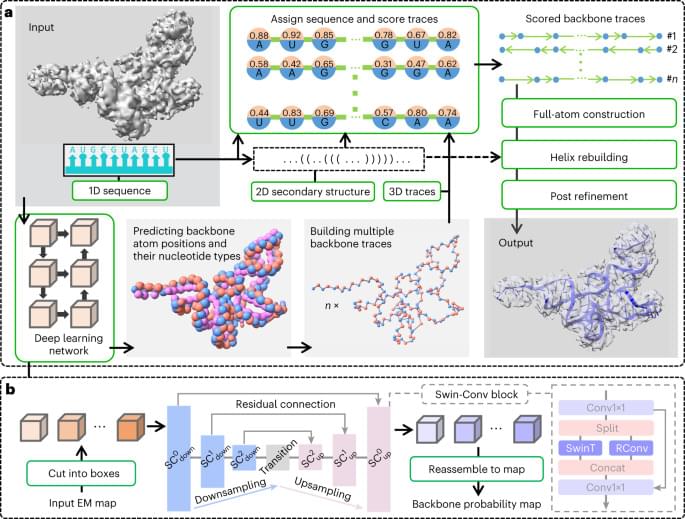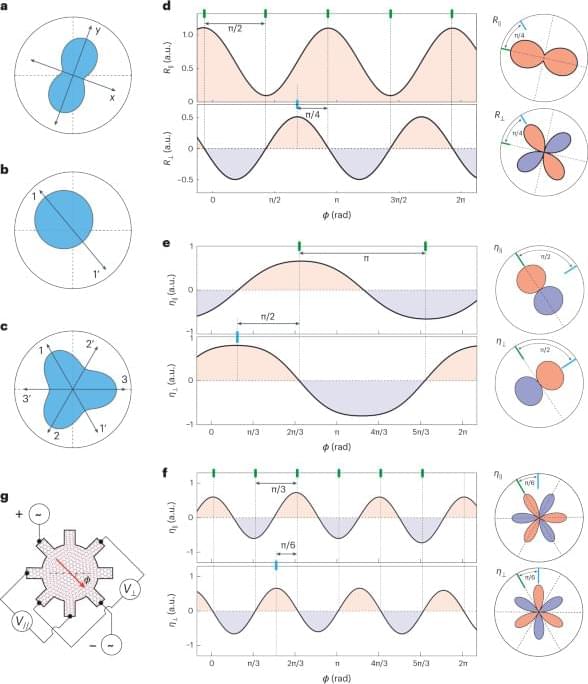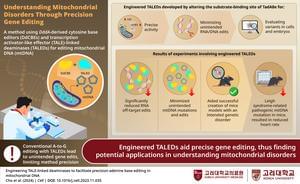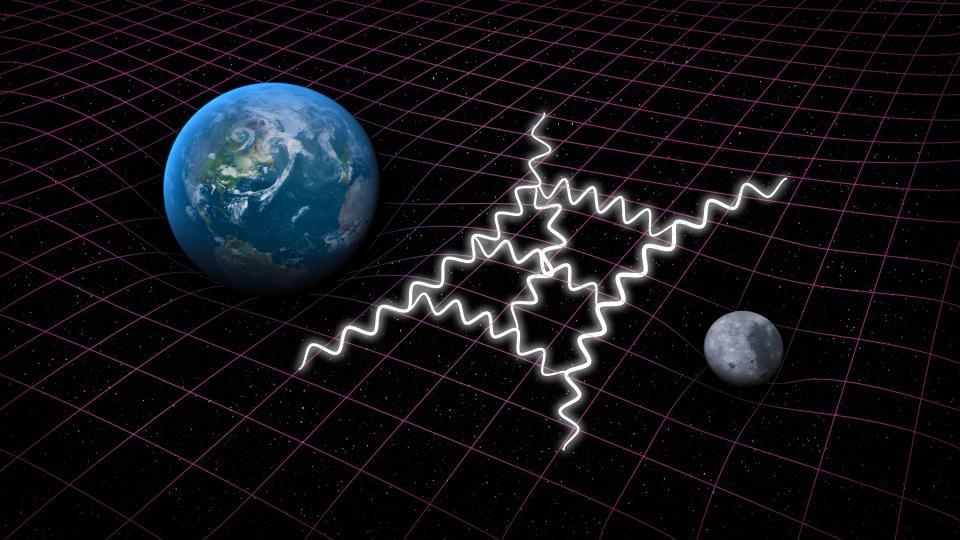RNA structures are built from cryogenic electron microscopy maps using deep learning and backbone tracing.



MIT researchers used ultrathin van der Waals materials to create an electron magnet that can be switched at room temperature. This type of magnet could be used to build magnetic processors or memories that would consume far less energy than silicon devices.

Gene editing technology could revolutionize the treatment of genetic diseases, including those that affect the mitochondria—cell structures that generate the energy required for the proper functioning of living cells in all individuals. Abnormalities in the mitochondrial DNA (mtDNA) could lead to mitochondrial genetic diseases.
Targeted base editing of mammalian mtDNA is a powerful technology for modeling mitochondrial genetic diseases and developing potential therapies. Programmable deaminases, which consist of a custom DNA-binding protein and a nucleobase deaminase, enable precise mtDNA editing.
There are two types of programmable deaminases for genome editing: cytosine base editors and adenine base editors, such as DddA-derived cytosine base editors (DdCBEs) and transcription activator-like effector (TALE)-linked deaminases (TALEDs). These editors bind to specific DNA sites in the mitochondrial genome and convert bases, resulting in targeted cytosine-to-thymine (C-to-T) or adenine-to-guanine (A-to-G) conversions during DNA replication or repair. However, the current gene editing approaches have many limitations, including thousands of off-target A-to-G edits while using TALEDs.
For more information on the Somatic Cell Genome Editing program, visit our website at: https://commonfund.nih.gov/editing Follow this link to for a version of the video that does not include audio descriptions: • NIH Common Fund Somatic Cell Genome E… Thousands of human diseases are caused by changes, or mutations, to the body’s DNA. What if we could treat all these diseases by diving into our living cells to correct the mistakes? The Somatic Cell Genome Editing program aims to make that happen. Recently, researchers have made great progress in correcting DNA mutations using a technique called genome editing, and the first tests of genome editing for human diseases are starting. However, there are still some challenges to achieve safe and effective genome editing in patient cells. The Somatic Cell Genome Editing, or SCGE, program was launched by the NIH Common Fund to develop quality tools to perform safe and effective genome editing in human patients. The SCGE program will make more genome editing tools available to researchers to develop better packages to deliver the tools to the right cells, design new tests for the safety and efficacy of genome editing, and make all of the information available to the scientific community to drive future discoveries and cures for patients.



String theory is widely considered beyond empirical investigation. But we could conceivably test it thanks to ancient particles called moduli, which might appear in astronomical observations, says theorist Joseph Conlon.

Scientists are a step closer to unravelling the mysterious forces of the universe after working out how to measure gravity on a microscopic level.
Experts have never fully understood how the force which was discovered by Isaac Newton works in the tiny quantum world.
Even Einstein was baffled by quantum gravity and, in his theory of general relativity, said there is no realistic experiment which could show a quantum version of gravity.
